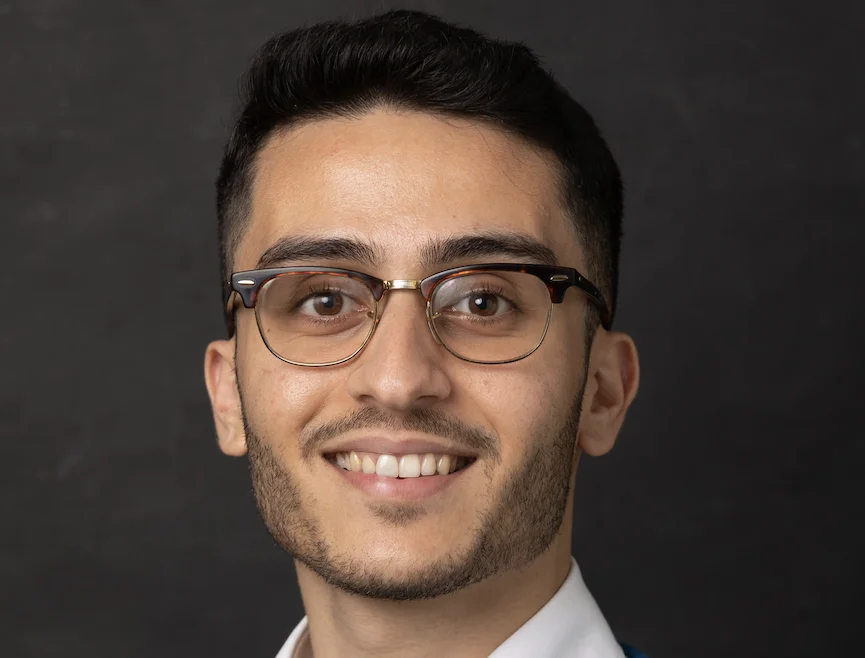Glen Spiteri
MSc Behavioural Science

Glen Spiteri graduated from the University of Malta in 2020 with a bachelor's degree in Economics and a minor in Public Policy, before earning an MSc in Behavioural Science from LSE. Following a two-year stint at the University of Malta as a research support officer and lecturer, he accepted an offer for a PhD in Cognitive Psychology at UCLA.
His research interests lie at the intersections of judgment and decision making, altruism, charitable giving, and moral psychology. Currently, he is working on empirical projects that apply psychological and behavioural insights to effective charitable giving. He is also developing an evidence-based theory of moral circle expansion and contraction. Glen is affiliated with the Rational Altruism Lab, directed by Professor Falk Lieder, and he also collaborates with the Uncertainty Lab, directed by Professor Craig Fox.
Whether it was lively debates in discussions, casual conversations, or the camaraderie of group assignments, I always felt encouraged to ask questions, challenge assumptions, and grow.
What is your current job title, and what does the role entail?
I'm a PhD student. I spend my time leading and supporting research projects that align with my interests. Some of these projects include, but are not limited to, theoretical work to understand and explain moral progress and moral regress, and empirical work on applying psychological and behavioural insights to motivate effective donations to charity. As a graduate student at UCLA, I also have the privilege of being a teaching assistant to undergraduate students of psychology.
Tell us about your career journey since graduating from LSE.
Since graduating from LSE, my career decisions have been guided by an enduring interest in understanding human behaviour, particularly in the context of moral decision-making and altruism. After finishing my MSc in Behavioural Science, I returned to Malta to work on a project evaluating the wellbeing effects of marine policy, which gave me valuable experience in field research and policy evaluation. This experience solidified my passion for academic research and motivated me to pursue a PhD in Cognitive Psychology at UCLA. At UCLA, I have the opportunity to collaborate with leading scholars in the fields of moral psychology and behavioral science, including through my ongoing work in the Rational Altruism Lab and Uncertainty Lab. My research today is a blend of theoretical, modelling, and empirical work that aims to understand how people made decisions that affect others, and how psychological interventions can promote more effective, compassionate, and impartial forms of altruism.
How has the programme you studied at LSE helped your career since you graduated?
The MSc in Behavioural Science at LSE was instrumental in shaping both my academic and professional trajectory. The rigorous training in experimental methods and data analysis gave me the technical foundation to design and evaluate complex research projects. More importantly, the interdisciplinary environment at LSE encouraged me to think critically and creatively about real-world problems, from charitable giving to public policy. The interactions and conversations with world-class faculty and diverse peers broadened my perspective, and many of the theories and methods I learned at LSE continue to inform my work to this day. I also owe it to the faculty at PBS for teaching me about state-of-the-art methods in open science.
What’s the best piece of career advice you’ve received?
The best piece of career advice I’ve received is to “treat setbacks as experiments rather than failures.” In research, as in life, not every idea will succeed on the first try. This advice has helped me to stay resilient in the face of challenges and to view each obstacle as an opportunity to learn and improve. It has also encouraged me to approach my career with curiosity and openness, rather than a fixed plan. I’ve come to realise that some of my most rewarding experiences have come from unexpected directions. Indeed, the first time I had ever set foot in the United States was the day I moved to Los Angeles to start my PhD.
What’s the greatest challenge you’ve had to overcome?
One of the greatest challenges I have faced is managing the uncertainty and self-doubt that often accompany an academic career. The transition from student to independent researcher can be daunting, especially when results do not go as planned or when projects hit unforeseen obstacles. In addition, coming from Malta (a very small country with a tight-knit community) means it is exceptionally rare to come across fellow Maltese in academic or professional settings abroad. As a result, I have had to regularly step outside my comfort zone, often “pushing alone” to build new networks and navigate unfamiliar environments. While this has sometimes been isolating, it has also taught me resilience, independence, the value of forging connections across cultures and disciplines, and to embrace a sense of belonging to a single group: humanity.
Share with us your fondest memory of the Department of Psychological and Behavioural Science.
My fondest memory is the sense of community and intellectual curiosity that permeated PBS. Coming from Malta, I was initially daunted by the prospect of joining such a diverse and highly accomplished cohort, but I was immediately struck by how welcoming everyone was, including students, faculty, and staff. Whether it was lively debates in discussions, casual conversations, or the camaraderie of group assignments, I always felt encouraged to ask questions, challenge assumptions, and grow. Those friendships and conversations remain some of the most valuable parts of my time at LSE, and I still carry that spirit of openness and collaboration with me today.
If you're a PBS alum and would like to share your experience, please get in touch at pbs.alumni@lse.ac.uk.